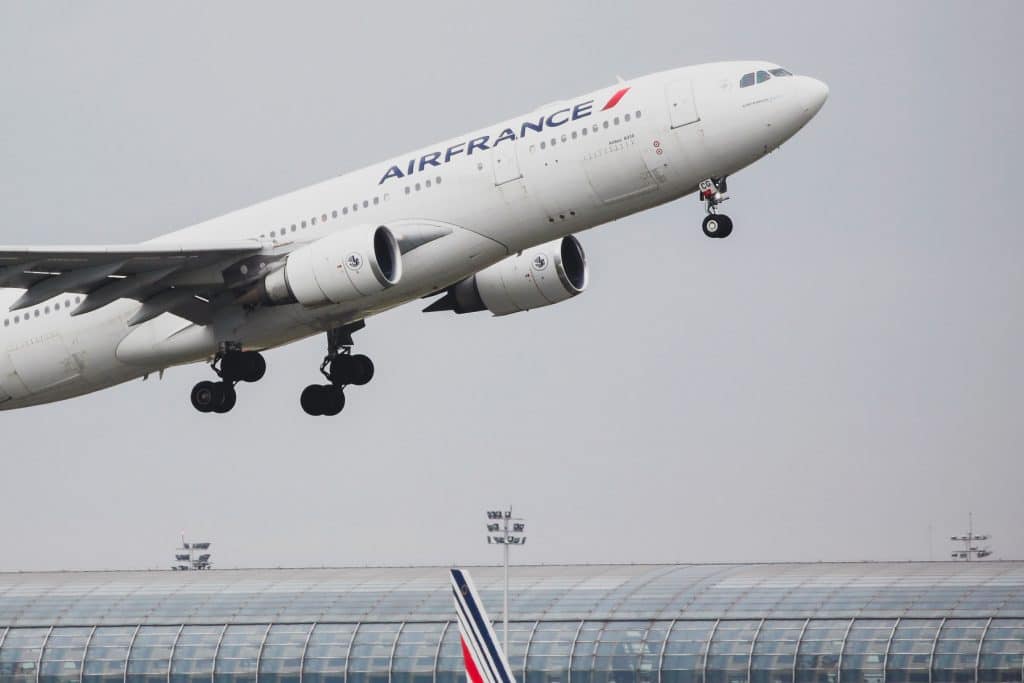The European Commission recently approved France’s ban on several short-haul flights aimed at reducing its carbon footprint. The move will undeniably benefit the environment. Is it time the rest of the world follows suit?
On any given day, roughly 100,000 flights take off and land all over the world. Easy access to plane travel is great for the tourism industry and for making it easy to see loved ones. But aviation is also impacting the planet. The industry is responsible for around 2.5 percent of all global carbon dioxide emissions. If the rest of the world were to follow France’s lead and ban some of these regular short-haul flights, many of which only take one or two hours, it would certainly be better for the environment. But the truth is, it’s complicated.
The problem with short-haul
The French ban will initially affect only three routes: those between Paris-Orly and Bordeaux, Nantes, and Lyon. The original plans were much more ambitious, but they ran into problems with the European Commission. According to reports, the Commission wanted to ensure that the ban only applied to routes with genuine rail alternatives running several times a day each way. With that in mind, the door is open for more routes to be banned in the future.
Climate campaigners, like Thomas Gelin of Greenpeace E.U., have hailed the move as an important “baby step,” but hope that the legislation will be extended to include more flights eventually. This is because flying short-haul is extremely carbon-intensive.

According to investment management firm Robeco, due to the fuel-heavy processes of take-off and landing, air journeys of 700 kilometers or less emit more carbon dioxide per person (around 251 grams per kilometer) than long-haul (around 195 grams per kilometer). While the overall footprint of long-haul flights is not to be dismissed, it is, of course, far easier to replace a short-haul flight with a rail alternative.
According to Greenpeace, a ban on all European short-haul flights where there is already a rail alternative of under six hours could potentially save around 3.5 million tons of carbon emissions from entering the atmosphere every year.
Can all countries follow France’s lead?
It’s worth noting that when they are available, trains are often a more appealing option than short-haul flights anyway. And not just for their lower environmental impact. As fuel prices rise, airline tickets are becoming more expensive by the day. And if you want luggage space, leg room, or the chance to book your seat — this is often going to cost you more too.
And France is in a good position to stop airlines from offering so many of these flights, because, for the most part, its railway service is up to scratch. It has a highly efficient high-speed train system, called the TGV. It operates all over the country, and it’s comfortable, easy to use, and relatively inexpensive, especially if you book in advance.

But not everyone has the same access to efficient train travel. Right now, in the U.K., for example, trains are not a reliable method of traveling the country because of ongoing strike action. In 2022, walkouts over wages and working conditions have resulted in the biggest instance of industrial action in the U.K. since the late 1980s. But strikes aside, high-speed trains are simply not available to all. A flight from London to the Scottish Highlands, for example, will take around one hour and 40 minutes. But the same journey by rail will take more than 10 hours.
But, there’s no doubt that when they are available and working to their potential, high-speed trains — like the TGV, as well as Japan’s Shinkansen and China’s network of super-fast railways — provide incredibly efficient and sustainable alternatives to flight travel. The Shinkansen, also known as the bullet train, can carry up to 1,300 people but uses 88 percent less energy than a flight. It also emits 92 percent fewer emissions per seat, according to Triodos Investment Management.

This is why, in the U.S., the national railway service Amtrak recently unveiled brand new high-speed trains, which are better for the planet, more comfortable for passengers, and more technologically advanced than their predecessors. In fact, Amtrak is investing more than $7 billion to improve its service and replace 83 old passenger trains across the country.
Greenpeace notes that upgrading existing trains and adding more connections is vital for the future of sustainable travel, as, ultimately, it will help to take more short-haul flights out of the air. The international environmental nonprofit claims that if all of Europe improved its train services, and made them all more accessible and affordable, this could save more than 23 million tons of emissions per year. To put that in perspective, that’s roughly the same as the annual emissions produced by the entire country of Croatia.
“The small improvement the EU has asked the French government for is welcome — but now it’s time to remove any outstanding ambiguity and make it clear to other EU countries that banning short-haul flights is the way to go for the future,” said Golin. “It’s high time for Europe to curtail the aviation industry’s skyrocketing emissions and invest in climate-friendly transport instead.”
Related on Ethos:


